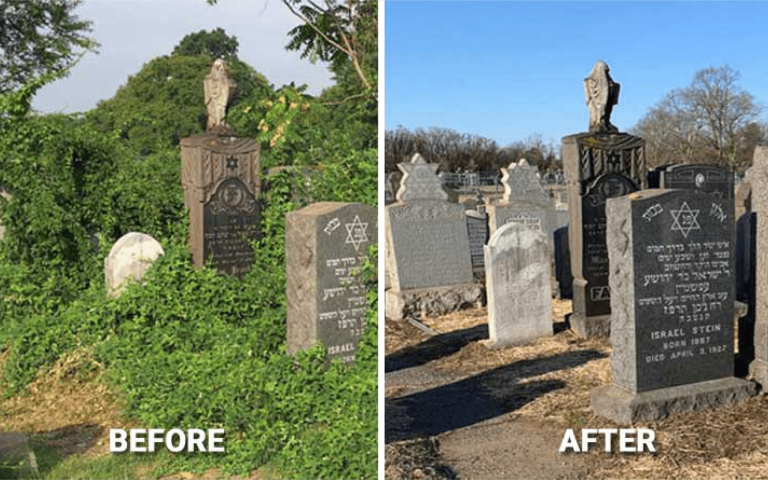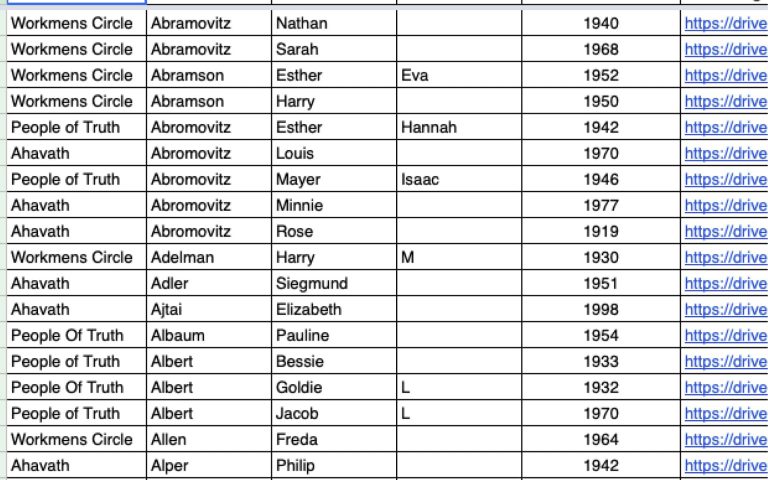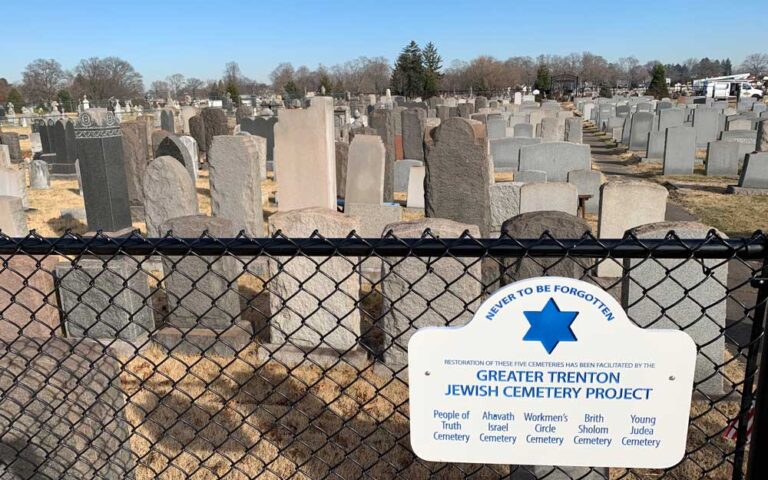With your help we are restoring dignity to our ancestors’ cemeteries, honoring their contributions, and setting a good example of stewardship for future generations.
In a tranquil area about four miles east of the New Jersey State Capitol, you will find six Jewish Cemeteries with graves dating back to 1857. They have not been vandalized, and there is no evidence of malice. Yet they have an uneasy final resting place: they have been neglected.
Some would say it’s shameful. We say it’s time to restore dignity and honor to the forebears of our region’s great Jewish heritage.
Never to be forgotten.
Please support our efforts to restore and maintain these sacred spaces. Read more…

In the database, you’ll find the information we’ve gathered from over 1,570 gravesites in the Pitman Cluster. Included, where available, are the names and years of death of those recorded, along with photos of those gravesites. Some additional family information is linked.
An ongoing effort.
Cataloging and photographing the gravesites, including all readily available information about the decedents, is a difficult task. With the support of donors like you, we hope to include some Pitman Cluster graves that are not yet catalogued, along with documentation of the 500+ additional gravesites now under our management at the People of Truth Memorial Section cemetery on Cedar Lane.

We encourage everyone to visit the cemeteries and pay their respects to those interred here. Whether marking a yarzheit, searching for long-lost family members, or simply exploring the history and life stories represented here.
New ways to visit the cemeteries.
While you are welcome to visit the cemeteries at any time, at your convenience, we now offer two additional visitation options:

Our Project Roots initiative seeks to encourage local Jewish youth to bring the history of Jewish life in Mercer County alive by creating living memorials to those buried in our cemeteries.
By telling their stories, students will honor our Jewish ancestors. They’ll learn about people who left their homes to escape persecution, pogroms, and poverty in search of a better life here in central New Jersey, and mostly in Trenton.
